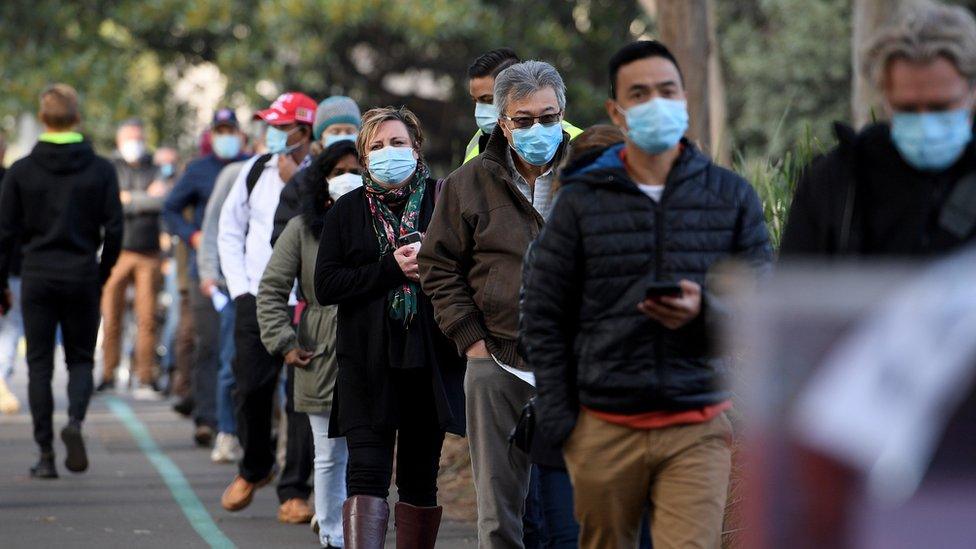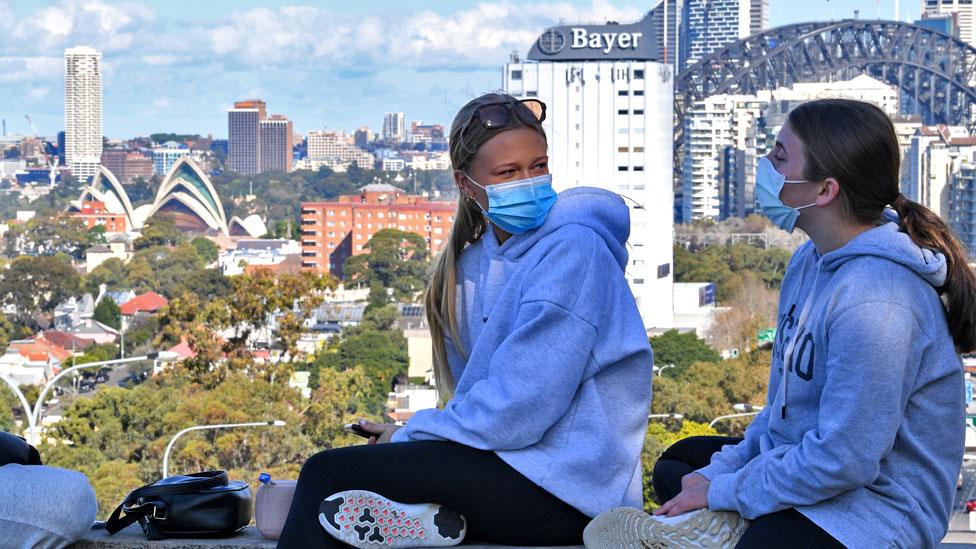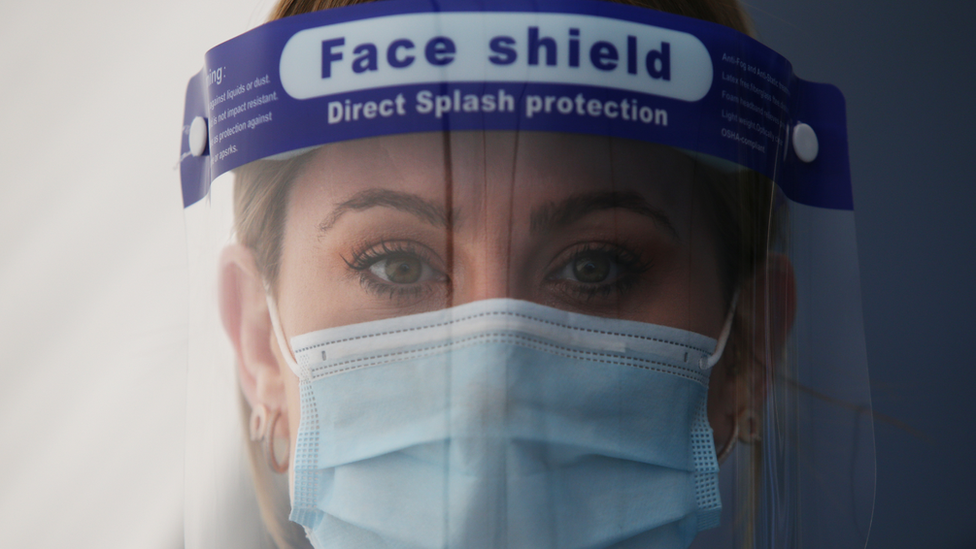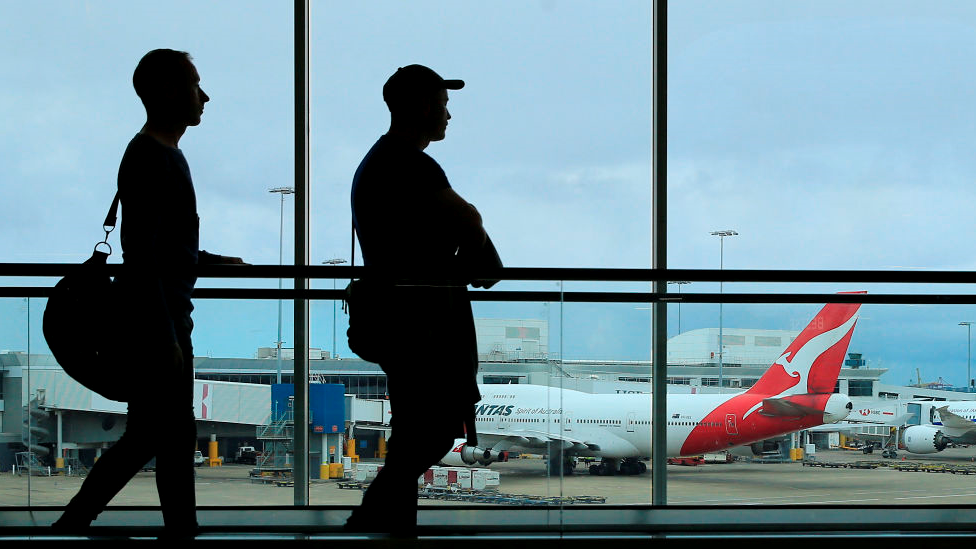Sydney sees highest Covid cases in months despite lockdown
- Published

Sydney's cases continue to rise despite residents enduring almost two weeks of lockdown
The Australian city of Sydney has recorded its highest daily rise in Covid cases in months, despite being in lockdown for nearly two weeks.
The New South Wales state government reported 38 cases in its capital on Thursday, pushing the case number of this Delta outbreak over 370.
Authorities said people were breaching lockdown rules by going to other households.
They have pleaded with residents to abide by the stay-at-home order.
"We just need people to stop interacting for this lockdown to work," said NSW Premier Gladys Berejiklian.
"Please stop visiting people indoors, outside your family, your household. Your immediate family means those you live with, it doesn't mean extended family or friends," she said.
She added that people with symptoms moving around the community were also fuelling the virus' spread.
Thursday's case numbers marked the city's highest single day caseload in 14 months.
Australia's biggest city, home to five million people, is under a stay-at-home order until 17 July. The neighbouring Blue Mountains, Central Coast, Wollongong, and Shoalhaven regions are also affected.
How does Sydney feel about the Covid lockdown?
Under the rules, people are allowed to leave their homes for essentials like shopping, exercise and care-giving. Businesses such as restaurants offering takeaway and specialist retail shops remain open.
'We need to step up'
Earlier this week, authorities were forced to extend the lockdown by a week because case numbers were not dropping - there have been around 18 to 35 new infections per day over the past week.
While a majority are being found in household contacts of infected people already in isolation, there are a significant number of community transmitted infections.
"Those numbers are too high. We need to get those numbers down," said Ms Berejiklian.
Sydney's cluster emerged in the beach suburb of Bondi and surrounding affluent areas in mid-June. But the hotspot has now shifted to the city's southwestern suburbs.
Critics say public health messaging has been ineffective in reaching non-English speaking communities there and many people rely on informal work that cannot be done from home.
Ms Berejiklian has warned that those areas could see tougher restrictions.
"We don't want to prolong the lockdown, we don't want to see Sydney going in and out of lockdown until we have the vast majority of our population vaccinated. It is up to all of us to step up, as difficult as it is."
New South Wales Police said it would send 100 more police officers to the hotspot suburbs from Friday to ensure people were complying with rules.
Vaccine pressure
Sydney's Delta outbreak and scares in other cities last week have sparked public anger over the federal government's slow vaccine rollout.
Under 10% of Australians are vaccinated and a lack of supplies, specifically of the Pfizer vaccine, mean many people - particularly aged under 40 - are unable to receive their jab until the final months of the year.
On Thursday, Prime Minister Scott Morrison said he would send 300,000 more doses of Pfizer and AstraZeneca vaccines to Sydney to fight the "very serious situation" there.
Australia's vaccine rollout began in February when the nation had very few cases. Its progress has been held up by supply problems and hesitancy over the side effects of the AstraZeneca jab.
Related topics
- Published7 July 2021

- Published29 June 2021

- Published2 July 2021
